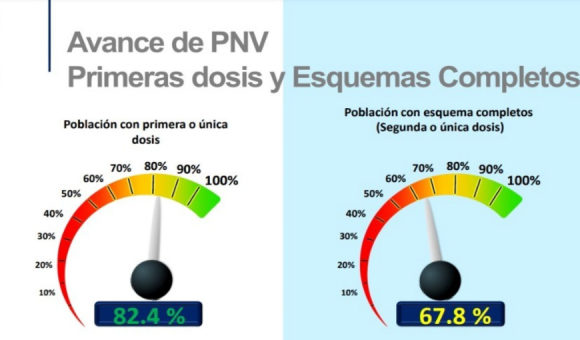Colombia Health System Faces Chaos, Corruption, Delays, Huge Costs Under President Petro’s Government-Monopoly ‘Reform’ Proposal

Colombia President Gustavo Petro and his Health Minister Carolina Corcho on February 13 unveiled a massive national health system “reform” proposal that is already setting off alarm bells in Congress, among health-system providers, health insurance networks, insurance buyers and future patients.
According to the proposal – now facing weeks of debate in Colombia’s splintered Congress – most of the existing “Entidades Prestadoras de Salud” (EPS) health-insurance networks here would be abolished — and the few remaining (seven in total) would be gutted and gradually transformed into vaguely-defined service providers, rather than health-network organizers and service payers.
Still unclear in the proposal is what would happen to existing or future private-sector prepaid health insurance (PHI) and “complementary” health-insurance policies and programs — the latter of which are just appendages to current EPS policies.
The issue: If the EPS networks eventually die, then so could the “complementary” policies — and maybe even the PHI programs, according to some analysts.
Ominous language in the new Petro proposal potentially could gut the value of such policies by forcing all PHI or “complementary” policyholders to use the new, government-monopoly health system, at government-dictated service prices — with all the inherent bureaucracy, availability constraints, political corruption and horrendous service delays that Colombians had suffered decades ago, under the old, pre-EPS health system.
Under a similarly disastrous government-monopolized health-care system now operating in Brazil, one-third of the entire Brazilian population has already fled the bureaucratic public health system, opting instead for private, PHI networks – fortunately still allowed by law there, but at relatively high cost.
Petro’s public unveiling of the “reform” proposal drew pathetically small crowds of a few hundred supporters at government-organized rallies this week (February 13 and 14) — in contrast to the massive anti-Petro, anti-health-reform protest marches in many Colombian cities today (February 15).
That’s not a favorable sign for Petro’s proposed health legislation, despite Petro’s well-known reputation for inciting angry divisions, chaos and violence (as in the “Primera Linea” riots of 2021) with extremist, demagogic oratory, typically featuring straw-man “enemies” along with clever use of factual distortions and outright lies.
Colombia’s existing EPS-network system arose from the “Law 100” legislation of 1993 – promoted and led by Petro’s long-time nemesis, former Colombian President Alvaro Uribe. That 1993 law replaced what had been an historically chaotic, corrupt, vastly underfunded, government-monopoly Social Security health system.
Under that prior Social-Security system, only 22% of Colombia’s salaried workers were covered for health care services, while another 40% of the population had to stand in line for government-subsidized services, many suffering or even dying long-before getting any help.
In contrast, today 99% of Colombians are covered by various EPS health insurance networks – a system that would be replaced by a new version of government monopoly, accompanied by new local/territorial health-service “districts” that would be vulnerable to becoming new centers of political corruption, huge waste and lengthy service delays, according to Colombia’s National Academy of Medicine (“ANM” in Spanish initials).
In a public letter to Colombian Health Minister Corcho this month – signed by ANM and 13 other Colombian health-sector associations – ANM warned that under Petro’s proposal to replace EPS systems with new health-system “territorial entities,” these new entities “do not have the capacity to audit and review accounts or to review billing by event prior to payment, which constitutes an imminent risk of overbilling by some IPS [hospitals and clinics] that can lead to a depletion of resources, compromising the financial viability of all IPS and the guarantee of the right-to-care for all residents in Colombia.”
Colombia’s existing Administrator of Resources for Social Security Health Care (“ADRES” in Spanish initials) currently sends all collected health premiums from employers, workers and government welfare agencies to the EPS networks for subsequent payments to hospitals and clinics for patient services.
But under the Petro proposal, ADRES would replace all EPS payment systems, creating a government-payment monopoly, eliminating private-sector competition, hence stifling innovation and economy – and creating great risk of political corruption, ANM warns.
Under the new scheme of local health-system “territorial entities,” ADRES would pay hospitals and clinics only as directed by these new “territorial entities” — members of which would be appointed or nominated by people who could be connected to corrupt Mayors and other local politicians, as in the prior, pre-1993 Colombian health system.
“Decentralization/deconcentration [of medical-service reimbursements to hospitals and clinics], which implies the appointment of managers, the formation of boards of directors and functional overseers of spending, must be carried out with the guarantee of preventing regional politicking and corruption. Audits should not be a function of ADRES. This must be done by an administrator/regulator,” according to ANM’s public letter.
“The forms of payment to health service providers must be defined, whether involving direct payment, or prospective global payment, etcetera. Other forms of contracting must be analyzed and arranged with the providers, including evaluation of health results,” the ANM letter warns.
Another section of the Petro proposal would require the creation of tens of thousands of new, territorial medical teams, currently non-existent. “The country must know the plan to meet the proposed goals in terms of the 20,000 territorial interdisciplinary medical teams,” ANM’s letter warns.
“A policy and resources for professional training and continuing education must be defined. A reform to the health system that does not contemplate a transformation of health education is incomprehensible,” the letter adds.
Currently, Colombia’s EPS organizations collect health-insurance premiums paid by companies and workers (the “contributory” sector) as well as government welfare payments designed to cover unemployed and unaffiliated workers (the “subsidized” sector). The EPS subsequently sends payments to hospitals and clinics to cover bills for services for both sectors.
But replacing the EPS networks with new, territorial health networks will cost at least COP$52 trillion (US$10.6 billion) under the Petro proposal, with nearly half of that cost hike (COP$25 trillion/US$5.1 billion) resulting from the creation of new primary-care health centers around the country.
Another COP$11 trillion (US$2.2 billion) would be required for new health-center infrastructure and COP$9 trillion (US$1.8 billion) for “formalization” and upgrading of health-care workers, under the Petro proposal.
Nowhere in the proposal is there any explanation of how to pay for these spending increases, although certain vague language in the proposal would authorize President Petro to make unilateral decisions to fund whatever programs he would like – a provision likely to provoke opposition in Congress.
Meanwhile, while Petro claims that too many Colombians suffer from poor service under the existing EPS networks, his massive, government-monopoly “reform” scheme eventually would destroy the entire existing system – its good parts along with the not-so-good parts — rather than surgically remove or replace diseased portions with cures.
That’s like bringing a reckless, incompetent knucklehead as the surgeon into the operating room, using a sledge-hammer rather than a scalpel.
So: Welcome to Petro Health Care, where many fear the ideologically inspired “cure” could become worse than the disease.
















